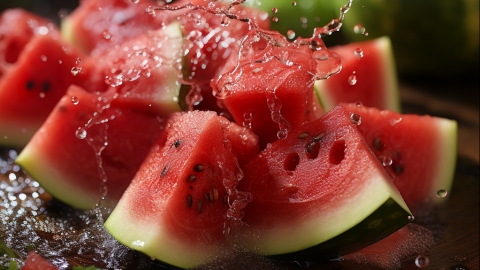Can I eat watermelon while on a diet?
Generally speaking, watermelon can be consumed during weight loss periods, but the key lies in controlling the portion size and choosing the appropriate time to eat it, avoiding excessive consumption that may affect the effectiveness of weight loss. The specific analysis is as follows:

Watermelon has a high water content, which can provide a strong feeling of fullness, and its calorie content is relatively low. Eating an appropriate amount of watermelon can help replenish fluids while reducing the intake of other high-calorie foods, making it a suitable fruit choice during a weight loss period. Watermelon also contains nutrients such as vitamin C and potassium, which help supplement the body's nutritional needs and maintain normal metabolism. However, watermelon contains considerable natural sugars, and excessive consumption may lead to excessive sugar intake, with surplus sugar potentially converting into fat accumulation, thus negatively affecting weight management. Additionally, watermelon has a high glycemic index, and consuming large amounts may cause rapid fluctuations in blood sugar levels, which could indirectly impact the weight loss process.
When dieting for weight loss, it is recommended to limit each serving of watermelon to about 200-300 grams, and it is best to avoid eating it before bedtime to prevent increasing the body's metabolic burden at night. In daily life, combining overall dietary adjustments and moderate physical activity will help achieve weight loss goals more effectively while ensuring balanced nutrition.








